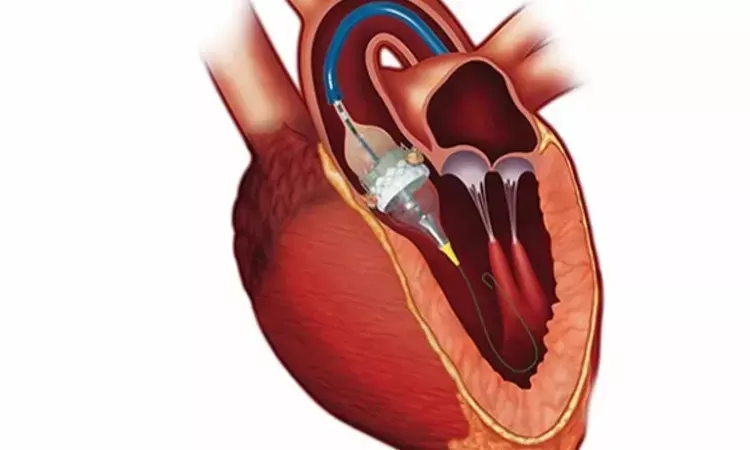- Home
- Medical news & Guidelines
- Anesthesiology
- Cardiology and CTVS
- Critical Care
- Dentistry
- Dermatology
- Diabetes and Endocrinology
- ENT
- Gastroenterology
- Medicine
- Nephrology
- Neurology
- Obstretics-Gynaecology
- Oncology
- Ophthalmology
- Orthopaedics
- Pediatrics-Neonatology
- Psychiatry
- Pulmonology
- Radiology
- Surgery
- Urology
- Laboratory Medicine
- Diet
- Nursing
- Paramedical
- Physiotherapy
- Health news
- Fact Check
- Bone Health Fact Check
- Brain Health Fact Check
- Cancer Related Fact Check
- Child Care Fact Check
- Dental and oral health fact check
- Diabetes and metabolic health fact check
- Diet and Nutrition Fact Check
- Eye and ENT Care Fact Check
- Fitness fact check
- Gut health fact check
- Heart health fact check
- Kidney health fact check
- Medical education fact check
- Men's health fact check
- Respiratory fact check
- Skin and hair care fact check
- Vaccine and Immunization fact check
- Women's health fact check
- AYUSH
- State News
- Andaman and Nicobar Islands
- Andhra Pradesh
- Arunachal Pradesh
- Assam
- Bihar
- Chandigarh
- Chattisgarh
- Dadra and Nagar Haveli
- Daman and Diu
- Delhi
- Goa
- Gujarat
- Haryana
- Himachal Pradesh
- Jammu & Kashmir
- Jharkhand
- Karnataka
- Kerala
- Ladakh
- Lakshadweep
- Madhya Pradesh
- Maharashtra
- Manipur
- Meghalaya
- Mizoram
- Nagaland
- Odisha
- Puducherry
- Punjab
- Rajasthan
- Sikkim
- Tamil Nadu
- Telangana
- Tripura
- Uttar Pradesh
- Uttrakhand
- West Bengal
- Medical Education
- Industry
MRI breakthrough could revolutionize diagnosis of common heart problem aortic stenosis: Study

University of East Anglia scientists have developed cutting-edge MRI technology to diagnose a common heart problem more quickly and accurately than ever before.
Aortic stenosis is a progressive and potentially fatal condition, affecting an estimated 300,000 people in the UK. It affects about five per cent of 65-year-olds in the US, with increasing prevalence in advancing age.
A new study, published today, reveals how a four-dimensional flow (4D flow) MRI scan can diagnose aortic stenosis more reliably than current ultrasound techniques.
The superior accuracy of the new test means doctors can better predict when patients will require surgery.
It is hoped the breakthrough could help save thousands of lives in the UK alone.
Lead researcher Dr Pankaj Garg, from UEA’s Norwich Medical School and a consultant cardiologist at the Norfolk and Norwich University Hospital, said: “Aortic stenosis is a common yet dangerous heart condition.
“It happens when the aortic valve, the main outflow valve of the heart, stiffens and narrows. This causes reduced blood flow from the heart into the rest of the body.
“Symptoms include chest pains, a rapid fluttering heartbeat and feeling dizzy, short of breath and fatigued – particularly with activity.
“At the moment, doctors use an ultrasound to diagnose the condition, but this can sometimes underestimate the severity of the disease, delaying vital treatment.
“4D flow MRI is an advanced heart imaging method that allows us to look at blood flow in three directions over time - the fourth dimension.
“We wanted to see whether it could provide a more accurate and reliable diagnosis than a traditional ultrasound.”
The team examined 30 patients diagnosed with aortic stenosis using both traditional ultrasound scans (echocardiography) and advanced 4D flow MRI imaging.
By comparing the results, they evaluated which method more accurately identified patients needing timely heart valve intervention.
They validated their results by comparing them with actual clinical outcomes over an eight-month period.
The team found that the 4D flow MRI technology offered more accurate and reliable measurements of blood flow through patients’ heart valves, compared to traditional echocardiography.
Dr Garg said: “We hope that this breakthrough will transform how cardiologists assess patients with aortic stenosis - leading to more timely interventions, fewer complications, and potentially thousands of lives saved in the UK alone.”
Reference:
Ciaran Grafton-Clarke, Hosamadin Assadi, Rui Li, Zia Mehmood, Rimma Hall, Gareth Matthews, Vasiliki Tsampasian, Samer Alabed, Bahman Kasmai, Laura Staff, John Curtin, Gurung-Koney Yashoda, Julia Sun, Sunil Nair, David Hewson, Kurian Thampi, Jordi Broncano, Fabrizio Ricci, Peter Swoboda, Andrew J Swift, Vassilios S Vassiliou, Rob J van der Geest, Pankaj Garg - Four-dimensional flow provides incremental diagnostic value over echocardiography in aortic stenosis: Open Heart 2025;12:e003081.
Dr Kamal Kant Kohli-MBBS, DTCD- a chest specialist with more than 30 years of practice and a flair for writing clinical articles, Dr Kamal Kant Kohli joined Medical Dialogues as a Chief Editor of Medical News. Besides writing articles, as an editor, he proofreads and verifies all the medical content published on Medical Dialogues including those coming from journals, studies,medical conferences,guidelines etc. Email: drkohli@medicaldialogues.in. Contact no. 011-43720751


